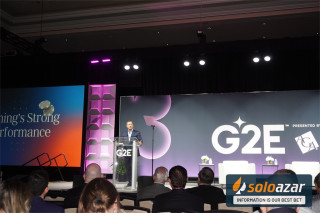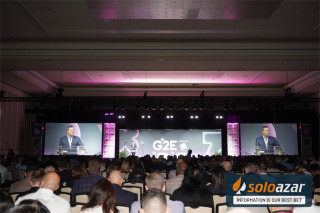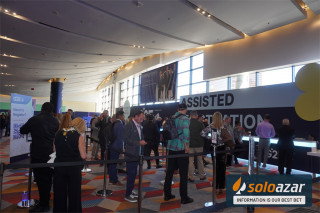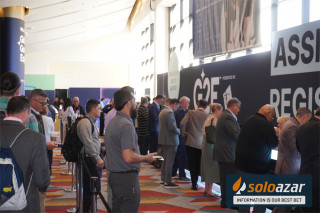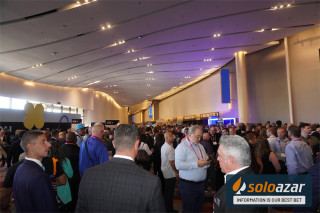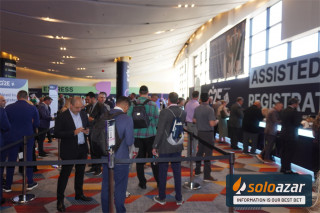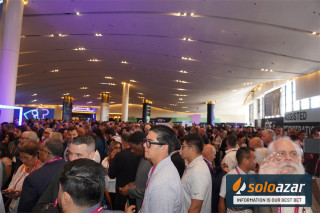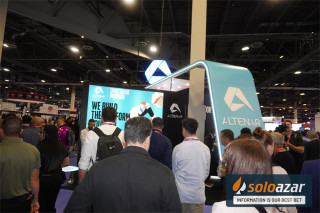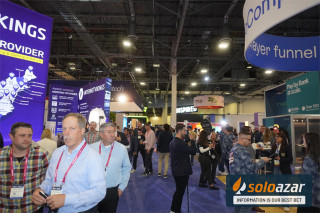Latvia's Constitutional Court Opens Inquiry into Gambling Restrictions in Riga
Thursday 11 de September 2025 / 12:00
2 minutos de lectura
(Riga).- A case has been filed with the Constitutional Court (SC) regarding restrictions on the organization of gambling in Riga. The case was filed following an application by SIA “Alfor”, SIA “Klondaika” and SIA “Olympic Casino Latvia” regarding the compliance of Paragraphs 2 and 3 of the binding regulation “On restrictions on the organization of gambling in the administrative territory of the Riga City Municipality” adopted by the Riga City Council on March 26 with the Constitution.

“We already stated in the spring that the binding regulations prepared by the Riga City Council (RD) on the organization of gambling in the territory of the municipality are neither proportionate nor legal and will most likely be challenged in the Constitutional Court,” recalls Līga Līce, executive director of the Latvian Licensed Gambling Association (LLAB).
The municipality has not taken into account the fact that the number of gambling halls in Riga has already decreased sharply in recent years, as well as the fact that changes are being made to the regulations, which stipulate that the facades of the halls will henceforth be “invisible”, that is, they will not be allowed to have bright signs. Consequently, the regulatory framework at the national level will ensure that gaming halls become inconspicuous and invisible to people who do not use this form of entertainment.
By disregarding the previous ruling of the Constitutional Court, the municipality is disrupting the operation of a legal, strictly supervised industry and harming the investment environment. As is known, the investors of all gambling organizers who are members of the LLAB are foreign companies that rely on the fact that Latvia is a legal state with equal treatment of all sectors of the economy and investments.
When developing the binding regulations, the RD has not objectively assessed and justified why all the places and territories listed in the binding regulations are unsuitable for organizing gambling in a situation where the territorial and building regulations allow the organization of gambling in these places and territories. Similarly, the RD has not properly assessed whether the set goals could not be achieved by other less restrictive means, which has led to the imposition of excessive restrictions.
The contested norms determine the places and territories in Riga where gambling is not permitted, and also regulate the actions of the municipality in cases where a permit has previously been issued to organize gambling in places or territories where it is currently not permitted.
The commercial companies that have submitted an application to the Constitutional Court, which have received permits to organize gambling in Riga, indicate that although the contested norms determine specific places and territories in Riga where the organization of gambling is prohibited, as a result of their application, such commercial activity is actually prohibited throughout the city.
In the opinion of the applicants, the contested norms restrict commercial activity and property rights, as well as violate the principle of legal certainty and the principle of protection of legitimate expectations. Consequently, the contested norms do not comply with the first three sentences of Article 1 and Article 105 of the Satversme.
The Constitutional Court has invited the Riga City Council to submit a response by October 27 with a statement of the factual circumstances of the case and legal justification. The deadline for preparing the case is January 27, 2026.
Categoría:Legislation
Tags: Sin tags
País: Latvia
Región: EMEA
Event
G2E - Las Vegas 2025
06 de October 2025
CT Interactive on Innovation, Networking, and Market Growth at G2E 2025
(Las Vegas, SoloAzar Exclusive).- The global gaming industry marked G2E’s 25th anniversary with a major gathering in Las Vegas. CT Interactive stood out for its innovative product development and international growth strategy. Account Manager LATAM at CT Interactive, Roberto Muñoz, shared insights on G2E’s importance, emerging trends, and the company’s collaborative expansion efforts.
Thursday 30 Oct 2025 / 12:00
Atlaslive Explored the Future of Gaming in Latin America at Recent G2E 2025
(Las Vegas, SoloAzar Exclusive).- Bruno Almeida, Head of Sales LATAM at Atlaslive, attended G2E for the first time to explore how land-based and online gaming are converging. His experience highlighted key trends shaping the Latin American market, from immersive casino innovations to strategic networking and regulatory insights.
Monday 27 Oct 2025 / 12:00
G2E 2025: Cristian Galarza, ASAP Director Explains the Importance of Attending the Event
(Las Vegas, SoloAzar Exclusive). - After attending the 25th anniversary edition of G2E in Las Vegas, ASAP’s director shares his perspective on the evolution of the industry, driven by digitalization, efficiency, and the creation of international networks that foster new business opportunities.
Tuesday 28 Oct 2025 / 12:00
SUSCRIBIRSE
Para suscribirse a nuestro newsletter, complete sus datos
Reciba todo el contenido más reciente en su correo electrónico varias veces al mes.


















